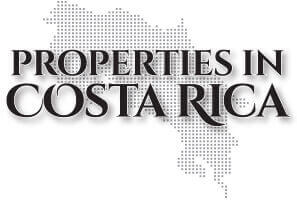Buying Process in Costa Rica
Search Your Property

The buying process here in Costa Rica is similar to that of the United States and is relatively straightforward. Below are answers to frequently asked questions about buying in CR.
The process works as follows:
1) You decide which home you would like to purchase, and we write up and present an offer to the seller, working out the terms and conditions of the deal.
It is customary to buy the property under a corporate entity. This is for various reasons, such as liability, bills, and bank accounts, and it also makes it easier to transfer the property to a family member if something happens. The cost for doing this is $750-$900. Most people do this during step 1 or 2, and most do it prior to leaving Costa Rica so that you have it in place and ready to go.
2) Once you are in agreement, the Offer to Purchase (OTP) is handed over to an attorney, who drafts a much more detailed Sales-Purchase Agreement (SPA). During this time, you will be setting up your Escrow account to send your deposit and eventual closing funds. You will also be establishing your Costa Rica holding corporation if you choose to use a corporate entity to purchase and own the property. Once the SPA is signed by both parties, you would send the deposit (usually 10%, but whatever is agreed upon in the OTP and SPA) to an internationally certified escrow account. The home is now officially “under contract.” There are fees incurred for writing this contract, typically paid by the buyer. If there is a mortgage with seller financing, the buyer pays to write and register the mortgage, which is about a $1,000 fee.
3.) Due diligence. This is typically a 30-day period, but more time may be negotiated. During this time, the deposit is refundable if any aspect of the due diligence comes back unsatisfactory. The deposit is NOT refundable if, for example, you decide you no longer like Costa Rica. The buyer typically covers all due diligence expenses. Due diligence items include:
- Checking the property title and searching for any liens, encumbrances, or pending legal cases from past workers, etc. The attorney handles this part. While we can conduct a preliminary title search and property registry lookup, investigating liens, pending court cases, etc., is something the attorney will handle. The attorney will also examine the corporation that owns the property.
- Checking property boundaries with a topographer – optional and recommended if the lines are unclear and not properly marked. Approximately $400 – $600, depending on property size.
- Soil test – usually done for lots without homes. Core samples of the soil are taken to determine its stability. The report in English, along with 3 core samples and a percolation test (for septic tank placement), costs $900. If you are purchasing a finished home, this part is not necessary. If you want to conduct this test for a finished home on the slope below or above a house, the same concept applies. We will inquire if the owners completed this prior to building, which could save you some money.
- Home inspection – This is to understand the property's condition, not to renegotiate the price as is common in the US. Homes here are sold "as is," and you cannot use an inspection to negotiate repairs. The cost varies from $400 to $800, depending on the home's size and the detail of the report.
- Prepare to transfer power, phone, TV bills, and any insurance policies if the home has these services.
4) Once due diligence is satisfactorily completed, you would send the remaining funds for closing and complete the closing anywhere from 5 to 30 days after due diligence is finished, as negotiated.
5) Closing - The title is transferred to your company name when you and the seller sign the closing documents. You must be physically present for closing unless you provide a specific Power of Attorney (POA) for someone here. This POA is solely for closing on the home, nothing else.
Closing costs are usually paid by the buyer and sometimes shared by the seller and buyer. Total costs are around 4%. Within that, 1.5% covers attorney/notary fees, and 2.5% covers registration, transfer taxes, government stamps, etc. So, you're looking at around 4% on the buyer's side (in addition to the separate due diligence fee) for your closing costs.
This can vary for more complex deals with seller financing; there are added costs for writing and registering the mortgage (as mentioned above). For cash deals, the buyer's attorney takes the lead, while for financed deals, the seller's attorney leads and drafts the mortgage. One attorney often handles the entire deal, which is not uncommon. The seller covers the sales commission.
A few notes on financing a property:
- Real estate transactions in Costa Rica are generally cash deals for foreigners. Many individuals utilize investments or sell property in their home countries to acquire land or homes in Costa Rica. While a few Costa Rican banks offer financing currently, you will still be required to provide a minimum of 50 percent of the property value in cash.
- Regarding financing here, seller financing is often the best option to consider. If you can obtain a line of credit back home, negotiating seller financing with a significant deposit is advisable. Most sellers require a 60% deposit and full payment within 2-4 years. Terms, interest rates, balloon payments, and monthly payments are all negotiable aspects. It's crucial to ensure you can make your payments, as the property serves as collateral. Defaulting means losing the property, your deposit, and payments made.
We hope this addresses many of your questions. If you have any additional questions or concerns please let us know.
